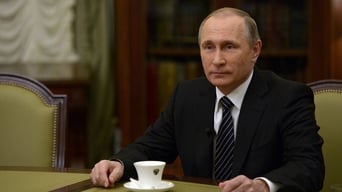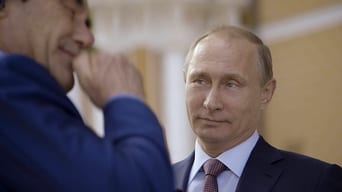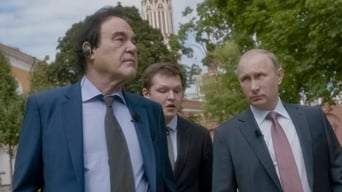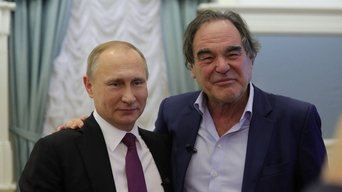clf-73998
Has there been a better example of our manufactured consent issued in the last few years? Only Megyn Kelly and NBC know for sure. If this got any fluffier, I might have made a lemon pie. The hockey section was vomit inducing. That I was meant to feel sympathy for a man who's only goal is to be the world's first trillionaire is laughable. Oliver Stone is a journalist and I'm the real Santa Claus.
Three stars denotes the lesson in our manufactured consent.
ilcool90
Oliver Stone is getting a lot of heat for this mini-series. The reason he gets all that heat is because western critics of president Putin can't live with the fact that the President is finally presented as a human and not as Dr. Evil like the western media usually does. Stone talked about every subject that the west is obsessed with and The President gave clear logic answers. President never badmouthed his western critics. This documentary also shows all the good things that President Putin did for his country and that he does everything with Russia's interests on the Nr. 1 spot. I am pretty sure that many people after watching this series will watch the news networks and talk shows with a huge brick of salt when the subject is going to be Russia and / or President Putin. Stone did a great non partisan job.
MisterHOH
Oliver Stone is a good filmmaker. I wish I could say I enjoyed these interviews, but I mostly did not.What I liked is that Oliver Stone understands subtlety and tries to have a cohesive and meaningful dialog above the black and white views and opinions, so heavily polarized in the media today. He's trying to understand the current state of the world as a multitude of multifaceted and complex issues that can't be addressed with just simple answers and demagogy. I respect that.What I really disliked is the fact that talking with Putin about these issues felt like talking with a robot, programmed to deliver the same answers with different words each time. Oliver Stone's questions, however pertinent they were, their answers always fell short, dissimulated, meaningless and mostly boring. His courtesy, joviality, towards Putin, made me a bit uncomfortable and I had to ask myself several times "Does he know with who is he speaking?". I mean, it is pretty clear by now that Putin sure as heck isn't an angel, with many people arguing that he's exactly the opposite with other worrisome adjectives added to his title. Yes, I can understand that he needed to be polite, otherwise he would probably never finish the documentary, but honestly, sometimes it felt like a bromance between the two.Digging a bit deeper in the analysis of the film, I felt it had several missed opportunities to convey a counterpoint or a different narrative using the most important toolkit a director can have, the visual language. Oliver Stone opted for some oblique footage (which are part of his visual style) used infrequently and some horrific footage of executions and other war related events, that apart for their shocking value, bring nothing else to the main story. There are some low angle shots that try to capture some body language from Putin, but I don't think they work very well in this context. I feel bad for criticizing such a great filmmaker, but I really think that there was more potential to create a more compelling story on the screen. One directorial device that I think would have worked better would have been to use the language barrier between the interviewer and the interviewee and rely more on the translator and give him a more important part to play in the dialogue and then emphasize the subtle changes between the translator and the subtitles, creating a small psychological dissonance for the viewer, which in turn would convey the complexity and ambiguous nature of Putin. I think the best example here would have been the director Claude Lanzmann, which heavily relies on spoken language as an integral part of his documentaries, especially considering that his films are also centered on very difficult and unpleasant subjects.Even though I admire Oliver Stone and I understand and respect the importance of what he's trying to do and also the difficulty of such a task, I believe that this film only hit some minor goals, but overall, missed what I consider to be the main mark, which is a genuine attempt at a characterization of Putin, with all the good and the bad that entails. However, dealing with such complex issues, I do recommend that this film should be seen, because these issues will sooner or later affect all of us and there can't possibly be just one right answer, or just one objective conclusion.I think that this film is a solid 7, but not much above that.
sonnygoten
Having seen all 4 parts, the first thing that I noted is the highly interesting differences between Putin as opposed to his Western counterparts in style of presentation. I found Putin's style to be less glamorous, less glitzy, and less artificial compared to western (read: USA) politicians. There's one scene in which he sits rather awkwardly and keeps tapping his feet, so you see his knees bobbing up and down; and another in which he keeps picking at his finger. I also found that in his manner of behavior he seemed much less desperate for approval compared to USA politicians and, rather than delivering fast one- liners that sound good, he takes his times to answer, even making pauses and wearing facial expressions that (to me) seem awkward. I don't know if he's just THAT good of an actor or if it's simply a cultural difference, and I can't judge whether the USA style is better or worse than Putin's style, but the difference in self-presentation is still very striking to me and interesting to see played out like this.Concerning the manner in which Oliver Stone conducted the interviews, I definitely liked it. They were done in a casual manner and with room for humor (I laughed my butt off at that coffee scene in the 4th part), but at the same time they allowed room for serious topics. Sometimes Oliver missed an opportunity to ask further critical questions; sometimes he tried to agree and please a bit too much to get Putin comfortable, but I liked the overall absence of any preconceived judgmental attitudes that many western journalists/interviewers have when interacting (read: arguing) with Putin. This allowed Putin to express his viewpoints in a relatively relaxed setting without the constant need to go on the defense; and it allows us viewers to make our own judgment on the man and his ideas, without being forced into adopting the viewpoint of a patronizing interviewer.My conclusion on Putin himself: There are some points that I agree with in his vision and some that I don't, and I also think that he portrayed himself and Russia in... let's just say 'highly glowing terms that are not always deserved', but that's a given considering his current position as Russian President. I absolutely love the way he insists on calling his USA counterparts "partners", though; it feels equal parts ironic, patronizing, and yet also re-conciliatory; and I'm pretty sure Putin intended it to be that multi-layered. The man definitely has a sense of humor that I can appreciate.Lastly, I should mention that I was rather shocked by some of the news segments interspersed in the interview, especially in the 3rd part; they were highly graphic in nature and I hadn't been notified of that beforehand. So, viewer discretion is advised. If you plan on showing this to children for educational purposes such as politics class, debate teams, etc. there should definitely be an adult present in the room; and, while I'm all pro-free-information-flow and pro- education, I would even then not show this to anyone under age ten, because it's graphic and it's REAL, not ketchup.
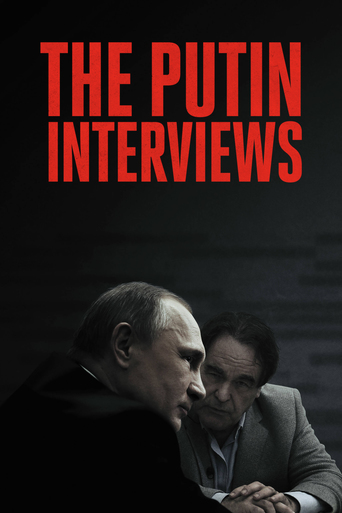
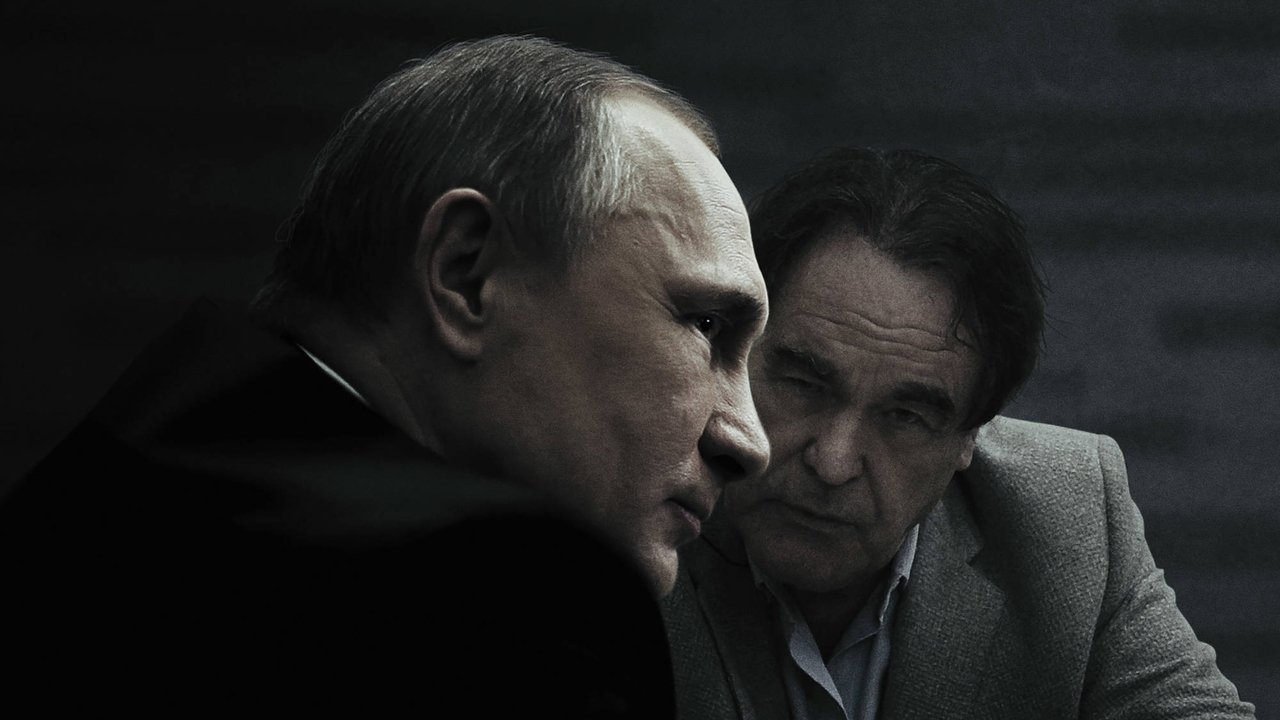
 AD
AD

